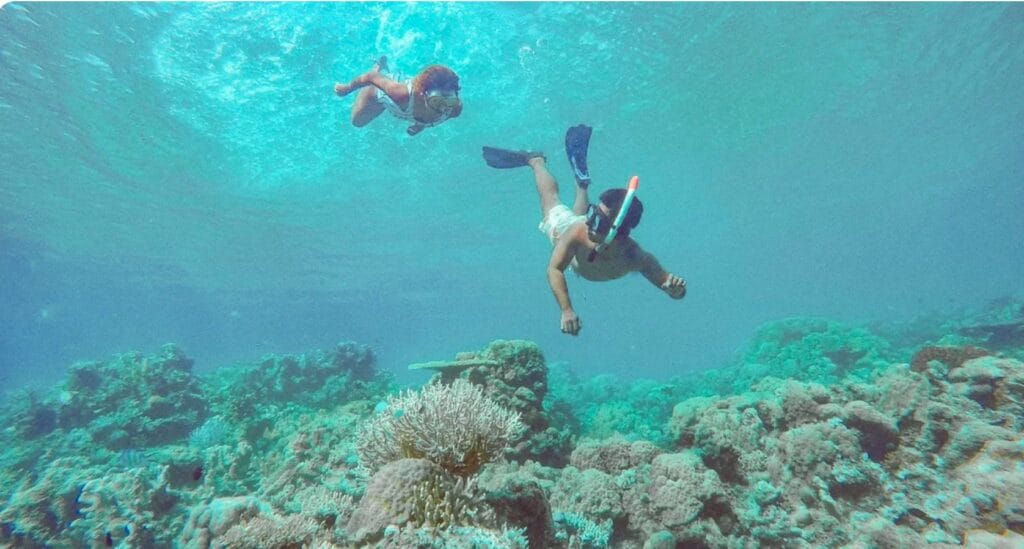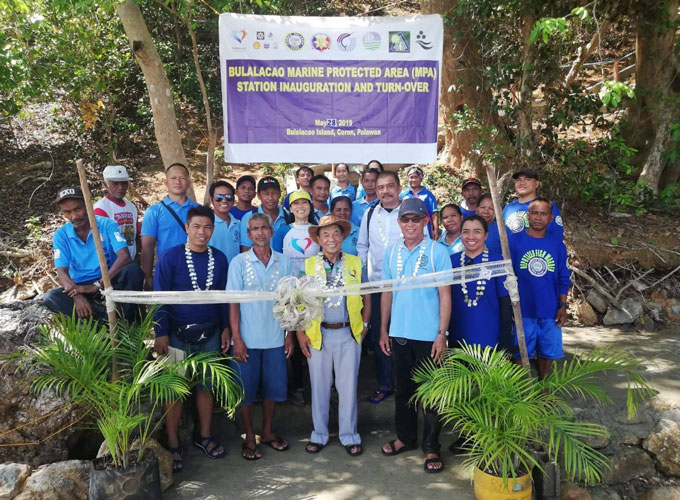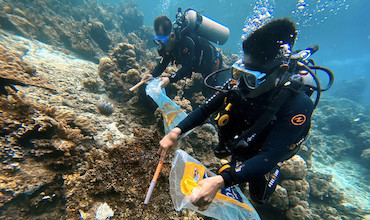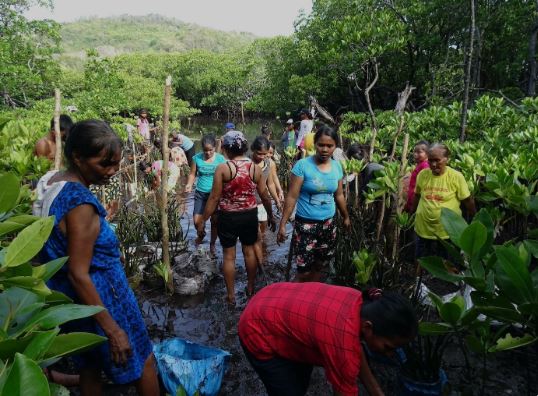Marine conservation efforts in Palawan, Philippines, are vital for preserving the region’s rich marine biodiversity and sustaining its delicate ecosystems. This commitment to marine conservation is especially important in areas like Coron to El Nido, where the natural beauty of the ocean is a major draw for travelers. The stunning marine life found here, including vibrant coral reefs, diverse fish species, and unique marine habitats, is a key attraction for those embarking on Tiki Tours and 3-day Expeditions to El Nido.

These 3-day tours not only offer travelers an unforgettable experience of Palawan’s pristine waters but also emphasize the importance of protecting these ecosystems. The cultural significance of Palawan marine life to local communities cannot be overstated, as it is deeply intertwined with their traditions and livelihoods. By highlighting the vital role that Palawan’s marine life plays in the cultural fabric of the region, these tours provide visitors with a deeper understanding of the local heritage and its connection to the sea.
Participating in eco-friendly activities during these tours allows travelers to contribute to the preservation of Palawan’s marine environments. Sustainable tourism practices, such as responsible diving, snorkeling, and respecting marine sanctuaries, are essential to maintaining the health of these ecosystems. Engaging with the stunning biodiversity of Palawan not only enriches your travel experience but also fosters a sense of responsibility toward environmental stewardship.
Ultimately, marine conservation in Palawan is about safeguarding the future of this beautiful region for both its residents and visitors. By promoting the vibrant Palawan marine life and the cultural richness from Coron to El Nido, we can ensure that future generations can enjoy the splendor of this paradise. Join us on these unforgettable tours to make a positive impact while discovering the breathtaking beauty of Palawan’s underwater world and its cultural heritage.

Various organizations, government initiatives, and local communities actively participate in conservation projects.

Here’s a detailed list of marine conservation efforts in Palawan:
Here’s an expanded version of each item, with added density of the term “Palawan Marine Life” for SEO optimization.
1. Tubbataha Reefs Natural Park:
Description:
Tubbataha Reefs Natural Park, a UNESCO World Heritage Site, is one of the most remarkable protected areas for Palawan marine life . This marine sanctuary is celebrated for its pristine coral reefs and diverse ecosystems that attract scientists, divers, and conservationists from around the world. Conservation efforts here include strict regulations on fishing, diving, and other human activities to protect **Palawan’s delicate marine life** and maintain the integrity of these vibrant underwater habitats.
2. Palawan Council for Sustainable Development (PCSD):
Description:
The Palawan Council for Sustainable Development (PCSD) is a government agency dedicated to preserving Palawan marine life through the implementation of environmental laws and policies. Engaging in various conservation projects, PCSD plays a crucial role in sustainable resource management and community-based initiatives that ensure the protection of **Palawan’s unique marine biodiversity**.
3. Community-Based Marine Sanctuaries:
Description:
Local communities across Palawan actively establish and manage marine sanctuaries to protect **Palawan marine life** in specific coastal areas. These community-based sanctuaries often involve community patrols, habitat restoration, and sustainable fishing practices that help preserve vital species and support the ongoing health of Palawan’s marine ecosystems.
4. El Nido Resorts’ Eco-Friendly Initiatives:
Description:
El Nido Resorts, a collection of sustainable island resorts, is deeply committed to preserving **Palawan marine life** through various eco-friendly practices. Their initiatives include waste management, coral reef protection, and community engagement to foster responsible tourism and protect **Palawan’s marine habitats** for generations to come.
5. Palawan NGO Network, Inc. (PNNI):
Description:
Palawan NGO Network, Inc. (PNNI) is a collective of NGOs focused on environmental conservation and sustainable development across the region. By addressing issues affecting **Palawan marine life** through advocacy, research, and community-based projects, PNNI works to ensure the preservation of **Palawan’s marine ecosystems**.
6. Integrated Coastal Resource Management (ICRM) Programs:
Description:
Integrated Coastal Resource Management (ICRM) programs in Palawan focus on the holistic management of coastal resources, placing equal importance on ecological, social, and economic aspects. By involving communities in the protection of Palawan marine life, ICRM supports sustainable livelihood projects, environmental education, and participatory conservation practices.
7. Marine Protected Areas (MPAs):
Description:
Palawan marine life thrives within numerous Marine Protected Areas (MPAs) established to safeguard critical habitats and biodiversity. These protected areas often restrict certain activities to allow natural regeneration and ensure the sustainable use of Palawan’s marine resources.
8. Coral Reef Monitoring and Restoration:
Description:
Conservation organizations and research institutions actively conduct coral reef monitoring in Palawan to assess the health of coral ecosystems essential for Palawan marine life. Restoration projects promote coral resilience and involve transplanting corals, which is key to supporting Palawan’s unique marine biodiversity.
9. Philippine Reef and Rainforest Conservation Foundation, Inc. (PRRCFI):
Description:
The Philippine Reef and Rainforest Conservation Foundation, Inc. (PRRCFI) is a non-profit organization dedicated to protecting Palawan marine life and rainforest ecosystems. Through community-based resource management and educational programs, PRRCFI enhances conservation efforts aimed at safeguarding Palawan’s unique marine habitats.
10. Fisheries Management and Sustainable Practices:
Description:
Fisheries management initiatives in Palawan promote sustainable fishing practices that support the survival of **Palawan marine life**. By encouraging responsible fishing methods, these programs prevent overfishing and ensure the preservation of marine biodiversity vital to Palawan’s coastal ecosystems.
11. Sea Turtle Conservation Programs:
Description:
Various organizations and local communities in Palawan run sea turtle conservation programs to protect these iconic species and support Palawan marine life. Initiatives include protecting nesting sites, implementing hatchery programs, and conducting education campaigns to minimize threats to these valuable species and their habitats.
12. Mangrove Conservation and Reforestation:
Description:
Mangrove areas in Palawan serve as essential nurseries for **Palawan marine life** and are crucial for coastal protection. Conservation efforts involve reforestation projects, sustainable use practices, and community engagement to maintain the health of these areas that support Palawan’s marine biodiversity.
13. Climate Change Adaptation Strategies:
Description:
Climate change poses a significant threat to **Palawan marine life**. Adaptation strategies implemented in the region include resilience-building measures, ecosystem monitoring, and raising community awareness on climate-related issues, all vital to protecting Palawan’s marine habitats.
14. Plastic Pollution Reduction Initiatives:
Description:
In Palawan, campaigns and programs work to reduce plastic pollution that endangers Palawan marine life. Community clean-ups, waste management projects, and educational efforts raise awareness on the impact of plastic pollution, creating a healthier environment for Palawan’s marine species.
15. Collaboration with Indigenous Communities:
Description:
Indigenous communities in Palawan play a vital role in preserving Palawan marine life through traditional conservation practices. By collaborating with indigenous groups, conservation efforts integrate valuable knowledge and support sustainable resource management practices essential for Palawan’s marine ecosystems.
16. Research and Environmental Education Programs:
Description:
Conservation organizations and educational institutions conduct extensive research on Palawan marine life to better understand local ecosystems. Environmental education programs foster awareness and responsibility for marine conservation, encouraging protection and respect for **Palawan’s marine resources**.
Tips for Supporting Marine Conservation:
– Responsible Tourism: Choose eco-friendly accommodations and tour operators that prioritize the protection of **Palawan marine life**.
– Reduce Single-Use Plastics: Minimize plastic consumption and participate in clean-up activities to protect Palawan’s marine ecosystems.
– Support Local Initiatives: Contribute to conservation projects that safeguard Palawan marine life by volunteering, donating, or engaging in responsible tourism.
– Educate and Raise Awareness: Spread knowledge about **Palawan marine life** conservation and participate in educational initiatives.
– Respect Local Regulations: Follow guidelines and rules set by marine protected areas and conservation organizations dedicated to preserving Palawan’s marine environments.
Marine conservation efforts in Palawan are essential for preserving the unique marine ecosystems and ensuring the long-term sustainability of the region.

By actively participating in or supporting these initiatives, individuals can contribute to the protection of Palawan’s marine biodiversity and promote responsible environmental practices.
